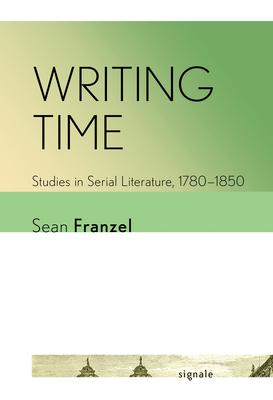Writing Time shows how serial literature based in journals and anthologies shaped the awareness of time at a transformative moment in the European literary and political landscapes. Sean Franzel explores how German-speaking authors and editors "write time" both by writing about time and by mapping time itself through specific literary formats.
Through case studies of such writers as F. J. Bertuch, K. A. Bttinger, J. W. Goethe, Ludwig Brne, and Heinrich Heine, Franzel analyzes how serial writing predicated on open-ended continuation becomes a privileged mode of social commentary and literary entertainment and provides readers with an ongoing "history" of the present, or Zeitgeschichte. Drawing from media theory and periodical studies as well as from Reinhart Koselleck's work on processes of temporalization and "untimely" models of historical time, Writing Time presents "smaller" literary forms--the urban tableau, cultural reportage, and caricature--as new ways of imagining temporal unfolding, recentering periodicals and other serial forms at the heart of nineteenth-century print culture.
